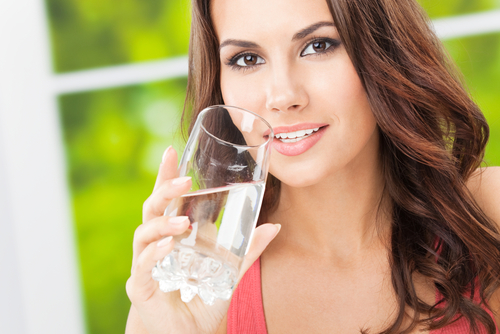Is Drinking Too Much Water Bad For You?
Short answer
Although very rare, drinking too much water can be dangerous. More specifically, it isn't drinking too much water that's bad, but the imbalance of water to electrolytes in your body after consuming large amounts.
Harmful to your health. Very few, if any, benefits are present. Things in this category should be avoided as much as possible.
View Full Grading System
Category 'A'
Very healthy and numerous health benefits. Side effects are rare. Things rated an 'A+' are typically necessary for survival (for example, water).
Very healthy and numerous health benefits. A few harmful qualities may be associated, but only under certain circumstances such as an allergic reaction.
Very healthy and numerous health benefits. Harmful qualities may be associated, but aren't usually serious.
It is important to note that even the best things in life can become bad in immoderate amounts. So, although something may be rated an 'A+', overconsumption/overdoing can bring unwanted effects.
Category 'B'
Very beneficial to your health. Things rated a 'B+' may have a few harmful qualities to pay attention to.
Overall beneficial to your health. Things rated a 'B' may have some harmful qualities to pay attention to.
More beneficial to your health than not. However, harmful qualities are most likely associated and shouldn't be overlooked.
The main difference between category 'A' and category 'B' is the harmful qualities typically present in 'B' items. Serious side effects are usually uncommon, but are still possible and should be taken note of.
Category 'C'
Both beneficial and harmful qualities associated. Things rated a 'C+' are typically a bit more on the beneficial side. Still, moderation is important.
A fairly even ratio of beneficial and harmful qualities. Moderation is important. Very general topics that can lean towards both sides of the spectrum will be placed here as well. Rice, for example, can be good or bad depending on the type.
More harmful than beneficial. Side effects are common, especially when consumed/done excessively. Moderation is very important.
Category 'C' usually denotes to both good and bad qualities. When it comes to this category, it is important to keep this word in mind: moderation.
Category 'D'
Harmful to your health. Although benefits may be associated, the bad most likely outweighs the good. Moderation is very important.
Harmful to your health. A few benefits may be associated, but the bad outweighs the good. Moderation is extremely important.
Harmful to your health. Very few, if any, benefits are present. Things in this category should be avoided as much as possible.
Category 'D' is typically for things that are more harmful than beneficial. While consuming/doing something unhealthy once in a blue moon shouldn't hurt, we definitely recommend eliminating 'D' items as a regular part of your routine/diet.
Category 'F'
Category 'F' is for things that fail to bring anything beneficial to the table, and are very harmful to your health. We recommend completely avoiding anything in this category. Long-term side effects of 'F' items are usually very serious.
Category 'N'
'N' stands for neutral. Things placed into this category are generally (a) neither good nor bad for you, or (b) lack the necessary evidence to reach any conclusions.
Long answer
Water is one of the six essential nutrients to life. You need it to live and maintain a properly functioning body. So, should drinking too much water be a concern?
When your body loses water (from sweating, excreting waste, and breathing), it also loses electrolytes. This creates an imbalance of water to sodium known as hyponatremia. When you are at this state of imbalance, drinking a lot of water will simply dilute the already low levels of electrolytes causing the sodium levels in your body to also become dangerously low. Most commonly, this will cause your cells to swell and symptoms such as lightheadedness and nausea to arise. In the rarest case, you can actually die.
The over consumption of water is mostly seen in athletes, as their intense workouts cause tons of electrolytes to be lost. It is said that there are 14 known cases of athletes dying due to too much water (and not enough electrolytes) during physical activity.
How much is too much? The American Chemistry Society claims 6 liters (around 25 cups) can kill a 165-pound human. So, try not to drink that much water in one sitting. If you have been engaging in physical activity and are concerned about overconsuming water, simply mix in a half teaspoon of salt to ensure the proper balance between your sodium and water levels.
Possible short-term side effects
- lightheadedness
-
nausea
-
puffiness
-
weight gain
-
headaches
-
confusion
-
agitation
-
vomiting
-
delirium
-
death
Healthier alternatives
- add salt to your water (will help balance sodium levels)
Please turn your Ad Blocker off to see this content. Thank you!
Thank you for your feedback!
Written by Rachel Adams
Published on: 12-28-2015
Last updated: 12-10-2016
Thank you for your feedback!
Written by Rachel Adams
Published on: 12-28-2015
Last updated: 12-10-2016

 Approved by
Approved by 















